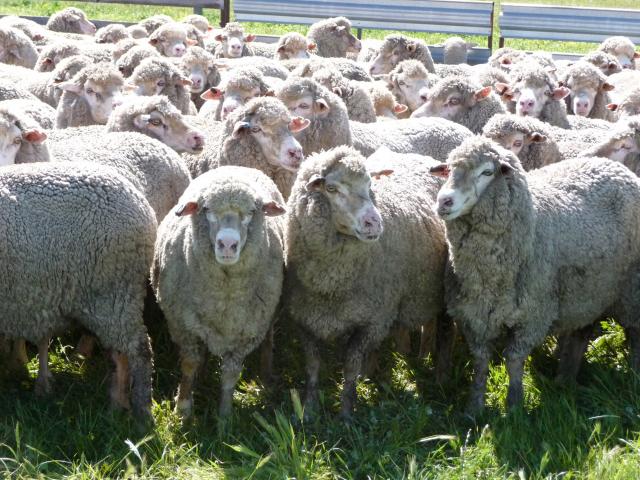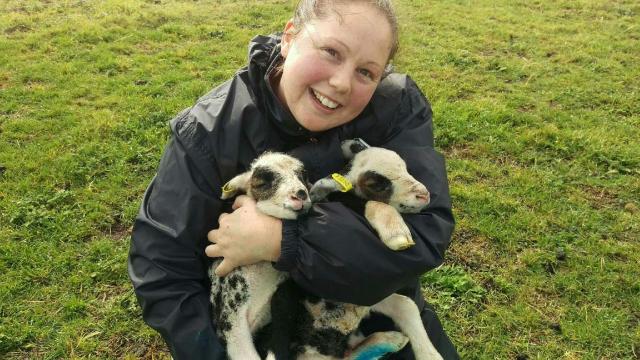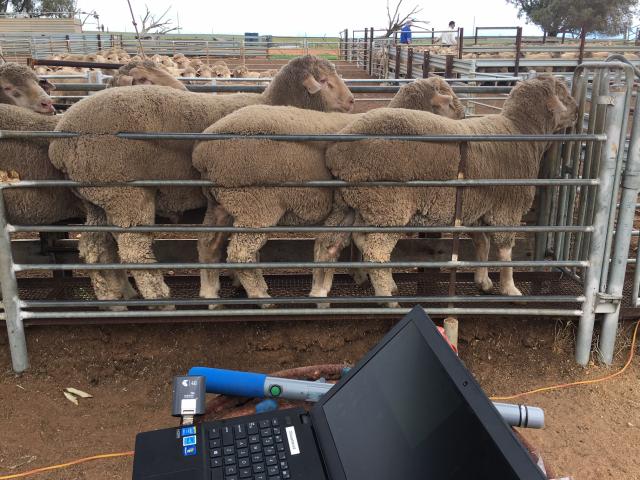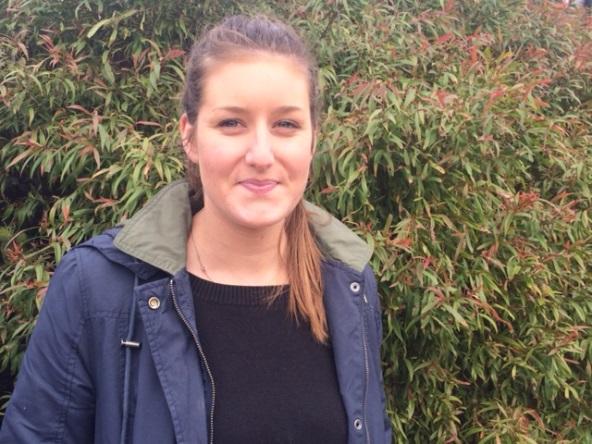Welcome
Welcome to the Sheep Industry Business Innovation (SIBI) project newsletter.
The Department of Primary Industries and Regional Development (Agriculture and Food) is proudly delivering this Royalties for Regions project, to support the sheep industry to capitalise on growing markets for sheep products.
If you have any suggestions for how we can improve this newsletter we’d love to hear from you at Sibi@dpird.wa.gov.au.
Flystrike Assist app now available for download
Preventing flystrike is much more economical than treating the disease and the department’s recently updated app is just one of the tools sheep producers have to manage their risk.
The Flystrike Assist app is ready for download on Android and iOS just in time for what is shaping up to be a busy flystrike season.
Given the wide range of chemicals available to producers, it can often be difficult selecting a chemical that balances the protection period against the strict withholding periods, but the Flystrike Assist app ensures producers have the correct information at their fingertips.
The app includes all of the commercially available flystrike preventative chemicals in one central database, and allows the producer to choose the chemical they intend to apply, access all the details about its withholding requirements and protection period, set an application date and prepare a flock treatment timeline and compare this against other chemicals. The user can also select a specific date of application and compare the timelines for various chemicals.
SIBI development officer Julia Smith said “Flystrike risk is determined by various factors such as the susceptibility of the sheep and environmental conditions, with spring generally being the optimum time for flystrike given the warm and wet conditions.”
“Sheep with high levels of dags are most at risk of breech flystrike, whilst those highly wrinkled; in long wool or showing signs of fleece rot are most susceptible to body strike.”
“SIBI has recently invested in updating this app to ensure that sheep producers are able to make well-informed decisions when dealing with what could be a difficult flystrike season ahead after recent widespread rain, coupled with forecast warm spring temperatures.”
The Flystrike Assist app is now available and free to download for both Android and iOS.
Sheep meat value chain training program: apply now!
Undergraduates and recently graduated young professionals, particularly those with a background in agriculture and agrifood, are encouraged to apply for the Sheep meat value chain training program 2018.
The program is a comprehensive five day training course for individuals who wish to pursue a career in agrifood, held in the Great Southern. It balances theoretical concepts of agrifood supply chain management and field visits and presentations from key industry practitioners and leaders.
The successful inaugural training program was run in January 2017 and included 25 tertiary trained undergraduates, postgraduates from five universities and some already in the industry and focused on sheep meat supply chains and markets. Several participants of the course reported the experience as ‘absolutely invaluable’.
SIBI Research Officer Justin Hardy said “Adopting a similar approach, the 2018 program has been developed ensuring participants will experience the sheep supply chain journey from paddock to the consumer.”
“Under the guidance of Professor of Agribusiness, Kim Bryceson at the University of Queensland School of Agriculture, the participants will get to tease out the detailed intricacies of the dollars and cents made, be provided opportunities to talk with the key practitioners in the industry and get a thorough knowledge of the risks and opportunities for future growth and prosperity of the industry in Western Australia.”
“Participants are presented with a ‘challenge’ assignment at the outset of the week, and then present their ideas for tackling industry issues through innovation and technology to a panel of industry leaders on the final day.”
“It’s a really wonderful collaborative platform for young, keen agriculturalists who are keen to learn and create networks, and it’s equally as valuable for the department and our partners involved in the program as we have this unique opportunity to get to work with the future leaders of our industry.”
For further information and applications forms, view the program’s webpage or contact Justin Hardy on +61 (0)8 9892 8408 or email justin.hardy@dpird.wa.gov.au
‘It’s Ewe Time’ forums put efficient farming in focus
Efficient and effective farming was in focus at the recently-held ‘It’s Ewe Time’ events, with presentations in Esperance and Northam on 22 and 24 August.
The forums were hosted by the Department of Primary Industries and Regional Development in partnership with industry bodies Meat and Livestock Australia (MLA) and Australian Wool Innovation (AWI), and were designed to increase producer awareness of the tools, techniques and technologies to help build a profitable and productive sheep enterprise.
Department Sheep Industry Development Director Bruce Mullan valued the opportunity to connect with the regions, and said: “Events like ‘It’s Ewe Time’ give the department a chance to continue building strong relationships and sharing knowledge with producers.”
Expert speakers at ‘It’s Ewe Time’ included the department’s senior economist Tamara Alexander, whose presentation was focused on alternative pathways to enterprise expansion.
Murdoch’s Sarah Blumer spoke about making your ewes work for you, and Emily King from AWI gave an interactive presentation on marketing trends for wool.
Brown Besier of Besier Parasitology presented on sheep health management, with development officer John Paul Collins’ talk on new on-farm technology concluding the day.
Comments from attendees were extremely positive, including praise for the diverse range of speakers.
Presentations and key messages from the event can be found on the Making more from sheep website.
Technology on tour: SIBI sheep tour to Victoria
Three thousand pregnant ewes on a three hectare feedlot, 180% lambing from precision vision management, ‘no hounds more pounds’ and single-use vehicles were but a snapshot of some of the innovative practices being applied on-farm in western Victoria.
These innovations were witnessed recently by an astute group of producers and professionals on the SIBI sheep study tour.
The department’s John Paul Collins and Beth Paganoni led a group of 19 producers through the biting cold of the Grampians to experience different agricultural policies, farming systems and quiz local researchers, consultants and producers on their knowledge and management of sheep husbandry and genetics.
John Paul said “The study tour included visits to Sheepvention, Victoria’s feed-intake facilities, the world’s largest ryegrass genetics trial and meetings with leading sheep producers from the region.”
“One example was our visit to Tim and Georgie Leeming’s property ‘Paradoo Prime’ north of Hamilton, which revealed what could be achieved when the bar was set high. Tim and Georgie run a self-replacing composite flock that weaned 180% (9200 lambs) from ewes joined in 2017 with the objective of achieving 11,000 lambs without compromising this weaning percentage over the longer term.”
“Tactics included a phased joining system incorporating teasing (two weeks) then a 17 day joining followed by a 20 day rest which is repeated twice. Dry ewes are reduced to less than 5%. Replacements are kept from the first joining to ensure the most fertile genetics are retained. Hotwires, small paddock sizes, containment areas, forage rape and grazing oats are also used strategically.”
Tour participant Clayton South (Wagin), commented regarding Tim Leeming’s system, “We are on the same track, just a little more immature. Getting up to his scale I realise is our aim. Whatever we are under him is what we’re not achieving. I am constantly thinking about where we can improve. It has got my head spinning. This tour has been and will continue to be a game changer for us.”
John Paul also said “A key outcome of the tour was internal networking. There was a diverse skill base in the group including sheep producers ranging from Kojonup to Bodallin, a feedlotter, supply-chain manager, sheep consultant and ag college teacher.”
“Regular debrief sessions were conducted throughout the tour allowing each participant to reflect on their learnings and share what they planned to bring back to their own sheep enterprises.”
Feedback from the tour participants was extremely positive, with Linda Rose, a producer from Bodallin, commenting: “Being with a like-minded group of people is a privilege. I feel we are on the right track and I am with the right people. Then you add the Victorians to the group! Thank you for the innovation, the inspiration and the friendships.”
For more information on the study tour, follow the twitter conversation from the tour using #WASheepTour or #SIBI.
A collated report from each of the individual study tour reports will be made available on the SIBI website in the coming weeks. To read more about the visits undertaken on the tour, please view the full webpage.
Prices, patterns and profitability of feedlots presentation
Sheep feedlot profit margins ranging from 10 cents/head to $14.80/head may be possible in Western Australia (WA) however seasonal price variations for feeder and trade lambs represent a threat to feedlot profitability.
This was one of the many findings from the SIBI commissioned Investor-ready sheep feedlot report, written by Geoff Duddy from Sheep Solutions, which will be presented in further detail on Wednesday 20 September.
The report drew from consultation with industry representatives including feedlot operators in WA and the eastern states.
It investigated in detail sheep feedlot design, establishment costs, infrastructure requirements, environmental impact and effluent management assessments and conducted a benefit/cost feasibility study for low-input, large-scale (from 5000 to 50 000 head) commercial sheepmeat feedlots in WA.
It found that small profits were possible, providing the feeder lamb price, relative to the trade lamb price, was 86% or lower. Profitability of finishing lambs was found to be most heavily influenced by the difference between purchasing and sale prices of the lambs, the time of year that the lambs were traded and how many were put through the feedlot.
The reports suggests that in the absence of contracts with processors, feedlot operators could use historical seasonal price patterns to estimate the value of finished lambs, and thus identify whether purchasing feeder lambs would be profitable or risky for the feedlot.
The results of the feedlot report will be discussed in detail at the department’s Theatrette, 3 Baron-Hay Court, South Perth, on Wednesday September 20 from 1.30pm-3.30pm. More information can be found on the presentation webpage.
The Perth seminar is also available via video conference to the department’s regional offices in Albany, Bunbury, Esperance, Katanning, Manjimup, Merredin, Moora, Narrogin and Northam. View office addresses here.
SIBI hosts Murdoch students for extramural farm experience
Six Murdoch university students recently joined our SIBI team at the department’s Katanning research station to gain valuable farm experience in stockwork and doing the lambing rounds.
Department Technical Officers Nicola Stanwyck and Tyler Loud hosted the vet and animal science students.
Nicola said “The students helped with lambing rounds for our Genetic Resource Flock, which involved catching, tagging and scoring every lamb, and monitoring ewes. Students were also able to assist with lambing difficulties and sheep treatments.
“We were lucky to be joined by two students for each week of July, who stayed at accommodation on site and were really in the thick of sheep work.
“This initiative was a tremendous success at a very busy but fulfilling time of the year; I hope it can happen again across different parts of the sheep calendar.”
The SIBI project recognises the value in supporting individuals to help solve industry relevant issues across the sheep supply chain through academic research, and expose and excite students to choose a career in the agrifood supply chain. SIBI is also offering a university scholarship program, more details of which will be in the next SIBI newsletter.
Murdoch’s extramural farm experience runs every year during the university holiday period, when vet and animal science students attend up to eight weeks at various farming enterprises, starting from the end of year one and must be complete by mid-year three of their courses.
The experience aims to provide students with an opportunity to develop the animal handling skills required to competently handle and examine a range of animals, but with a strong emphasis on livestock, the communication skills necessary to interact with the farming community, a practical understanding of livestock farming systems, an appreciation of the challenges faced by livestock producers and veterinarians servicing rural communities.
Sheep technology field day: Mulga Springs Poll Merino Stud, Northampton
The SIBI project and the Northern Agri Group (NAG) are co-ordinating a ‘sheep technology field day’ hosted by Mulga Springs Poll Merino Stud, Northampton, on the afternoon of Tuesday 19 September.
The program will include topics such as planning for sheep feeding over summer, sheep genetics and Australian Sheep Breeding Values (ASBVs), electronic identification (EID) equipment and software, Fitbit sensors for sheep and Lifetime Ewe Management.
Speakers include Jonathan England (AgInnovate), Brydie Creagh (RIST/DPIRD) and the department’s John Paul Collins, Beth Paganoni and Melanie Dowling.
There will also be a discussion on Mulga Springs’ individual journey into ASBVs and EID, presented by owner Jessica Horstman, where she will discuss some of her key learnings.
In July 2016, the department awarded Mulga Springs Poll Merino Stud a support package to implement EID into their stud. The EID support activity included implementation of Shearwell EID tags, stick reader and barcode printer, Practical Systems Stockbook subscription, Sheep Genetics subscription and 12 months consultant support.
Jessica believes that this project has been invaluable to help her get started with EID at Mulga Springs, especially support associated with the needed bits of hardware and software appropriate for their enterprise.
Jessica said the positives she has gained from the project include being inspired to purchase a sheep handler and consider other labour saving systems, clearly seeing the benefits of ASBV’s and EID and purchasing rams from a stud with ASBVs so they can gain linkages in Sheep Genetics, and inspiring discussion among other farmers in the district and the sharing of ideas and experiences.
She is hoping this year’s data will provide them with initial flock breeding values so they can more accurately assess potential sires; in time they will have data with higher accuracy to advance their flocks genetic gain. They are also hoping to cull animals not just on visual scores, but breeding values so they aren’t carrying sheep when they aren’t profitable, which is especially important in a year like 2017.
Mulga Springs’ experience will be discussed in greater depth on the day. For more information or to RSVP for the Mulga Springs Field Day, please view the sheep technology field day webpage.
Meet the team: Lifetime Ewe Management Coordinator Brydie Creagh
Brydie Creagh grew up in farming communities throughout southern Western Australia on cropping and sheep farms, before moving to Albany for high school.
With her whole family working in the agricultural industry, she initially thought of pursuing a career in a different field until she became involved with a national organisation called the Primary Industries Centre for Science Education (PICSE), an organisation with the goal of educating young people on the opportunities in the primary industries.
Brydie said “Through PICSE, I got the opportunity to learn about some of the critical research being done in the industry, and network with a range of industry members, including other students and industry leaders.”
“The program included hands on experience with industry placements at the department’s office in Albany, and at Dow AgroSciences research station in Waurika, New Zealand.”
Brydie studied a Bachelor of Science, majoring in Agricultural Science at the University of Western Australia from 2012-2016, and between university semesters she worked at her family’s farm supplies business in Ongerup, where she took the time to do as much work experience with the local agronomist as possible.
In 2016, she studied externally in order to work full-time at another farm supplies shop in Katanning, training as an agronomist, helping manage the animal health products, and taking part in various sheep management and agro chemical training.
In 2017, prior to starting a new job as a technical agronomist for a chemical company, Brydie attended the inaugural SIBI Sheep Meat Value Chain Training Program, which exposed her to the numerous opportunities in the sheep industry.
Brydie said “The course showed me all the components of the industry along the supply chain. Presentations from key industry figures gave me good insight into the challenges the sheep industry faces and the exciting opportunities particularly where technology can really improve productivity.”
“This really motivated me to apply for this WA Lifetime Ewe Management Coordinator role when I saw the position advertised.”
“I’m passionate about assisting farmers improve the productivity and sustainability of their farming enterprise, educating the wider public about the Western Australian agriculture industry, and connecting urban and rural communities to improve the world’s understanding of food and fibre production.”
To get in touch with Brydie, or learn more about Lifetime Ewe Management, email brydie.creagh@dpird.wa.gov.au.






